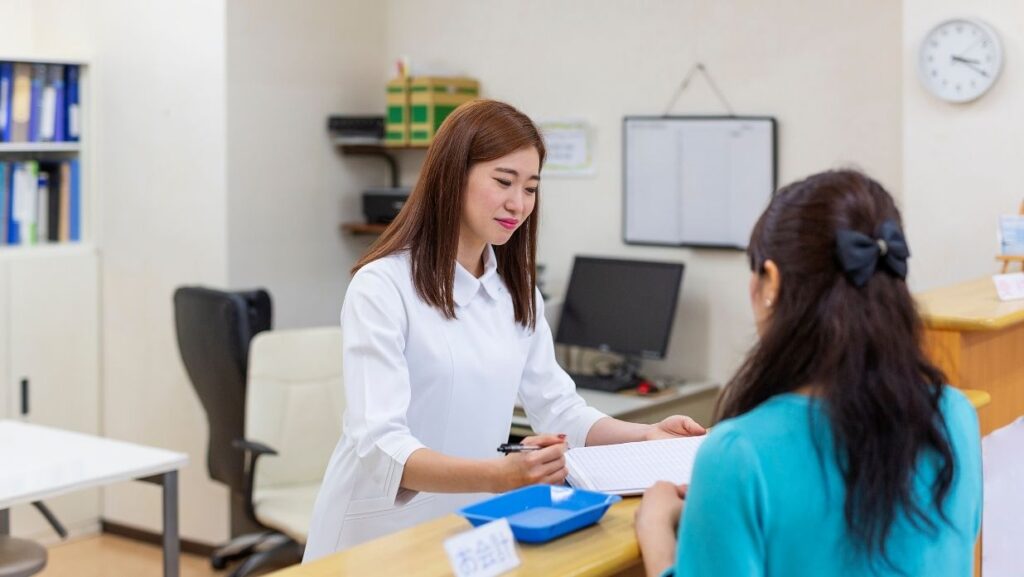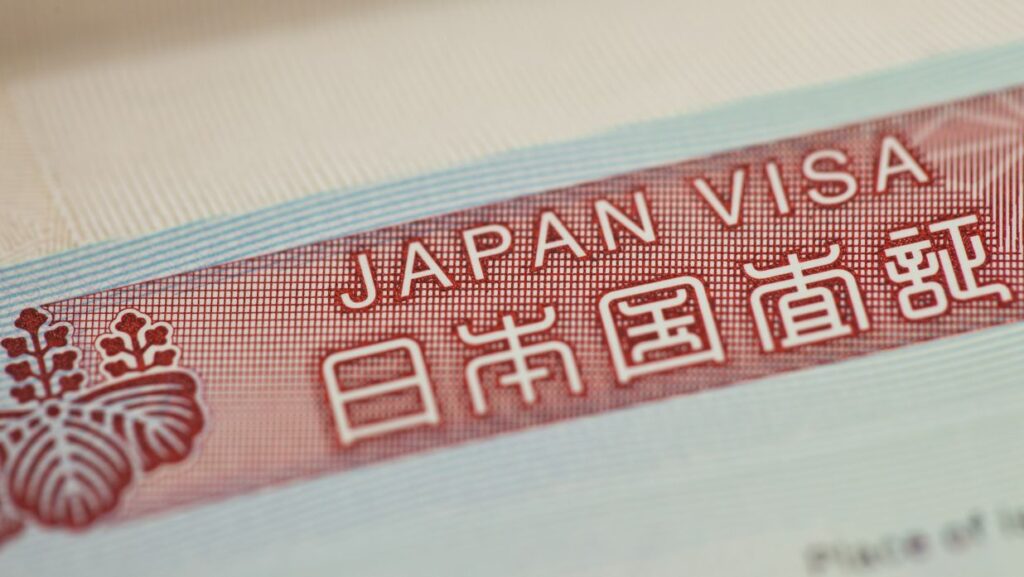If you’re living in Japan on a working or permanent visa and want to bring your family over, the simplest option is to apply for a Dependent Visa for your spouse and children. This allows them to come to Japan under your sponsorship. But while the Dependent Visa may seem straightforward, there are important things to keep in mind: the process can be lengthy, and there are several conditions and restrictions you’ll need to meet.
For example, if you’re in Japan on a working visa — commonly known as the Engineer/Specialist in Humanities/International Services visa — your spouse or children must apply separately for permission to work, which, if granted, limits them to working up to 28 hours per week.
So, how do you get a Dependent Visa in Japan, and what are you allowed to do with it? Read our complete guide to learn everything, from deciding if it’s the right option for your family to the step-by-step application process.
Disclaimer: The information provided here is for general guidance only and does not constitute legal advice. Immigration policies and procedures in Japan are subject to change, and individual circumstances can vary. For the most accurate and up-to-date information, we recommend consulting with an immigration lawyer or your local immigration office in Japan.
What is a Dependent Visa?
A Dependent Visa is a type of visa in Japan that allows the immediate family members to live with their spouse or parent who works in Japan. Basically, this visa was created to keep families together when the primary breadwinner decides to live in Japan.
Types of Dependent Visa

Technically, there is only one official Dependent Visa, but you might hear discussions and online forums mentioning Spouse Visa and Dependent Visa interchangeably. Are they the same?
Technically, no. A spouse visa is for foreign spouses of Japanese nationals or permanent residents and allows full work rights, while a dependent visa is for the family of foreign residents and limits work to part-time with permission.
According to Japan’s Ministry of Foreign Affairs, there are three main types of marriage- or family-based visas:
- Spouse or Child of a Japanese National (Status: Specified Visa)
- Spouse of a Permanent Resident (Status: Specified Visa)
- Dependent Visa (Status: General Visa)
The type of “dependent” visa your spouse or children are eligible for depends on your own status of residence and visa in Japan. If you’ve successfully naturalized as a Japanese citizen — a lengthy process in itself — or obtained the coveted Permanent Residency (PR), you’ll likely want to apply under visa categories (1) or (2).
These options come with no work restrictions for your spouse or children. This is a great path because even if your spouse doesn’t plan to work right away, having that flexibility can be a real advantage!
However, if you’re in Japan on a non-permanent residency or a specific type of work or student visa, you’ll likely need to apply under (3): the Dependent Visa. In this case, your spouse or child must apply separately for permission to work, and even then, they’ll be limited to 28 hours per week.
In this blog, we will be focusing more on the Dependant Visa (3).
Who can sponsor Dependent Visas?
In order to apply for a Dependent Visa, a person who is working or studying in Japan (including those who plan to work in Japan in the future) must be granted a status of residence such as a work visa or a student visa.
So, which visas can bring in their spouse and/or children on the Dependent Visa? Below is a small, non-exhaustive list of visas that allow dependents:
- Student visa
- Cultural Activities visa
- Researcher visa
- Engineer/Specialist in Humanities/International Services visa
- Specified Skilled Worker visa
- Instructor visa
- Professor visa
Keep in mind that when we say students, we’re referring specifically to foreigners enrolled in higher education institutions in Japan, such as universities or graduate schools. Unfortunately, language schools are not considered higher education, so students attending Japanese language schools are not eligible to bring family members to Japan under the Dependent Visa.
Length of stay for Dependent Visa
The Dependent Visa can allow dependents to reside in Japan for either 6 months, 1 year, 3 years, or 5 years. But the total length of stay of the Dependent Visa would likely correlate with the stay granted on the sponsor’s visa.
For instance, if the sponsoring work visa is only for 2 years, then the Dependent Visa would probably only be granted for less than that.
Who can get a Dependent Visa?
The Dependent visa is for immediate family members considered dependent on a work or student visa holder. The visa is only for the spouse or children of the primary income earner.
There is no age limit for child dependents. However, if they are of working age, they should consider whether working in Japan is right for them and apply for visas with more flexibility.
Other family members, like parents, cannot obtain a Dependent Visa even if they are financially dependent on a work or student visa holder. However, they can obtain a designated activities visa if they are a family member of someone with a highly specialized worker visa.
In Japan, only legal spouses and children are eligible for the Dependent Visa. While many European countries offer partner visas that recognize common-law relationships or long-term partners, Japan does not offer this flexibility.
If you’re not legally married, your partner, even if you have children together, cannot be brought to Japan under a Dependent Visa.
So what does this mean? We understand that many modern families may have children without being legally married. Your options can be to get married to your partner or have your partner explore other visa types and apply independently.
Permitted activities for individuals on a Dependent Visa

So, what can you do with a Dependent Visa? As the name suggests, the foreign national working or studying in Japan must be able to cover all living expenses for the dependent with either their own income or the assets they own.
Dependent Visa holders in Japan can go to school, hospitals, and other public facilities, but are not allowed to work. In most cases, they cannot live separately from the breadwinner. However, there are exceptions to allowing the dependent to live separately. For instance, if they need to transfer schools, and have to move to live closer to the school.
Basically, a Dependent Visa holder can be enrolled in the National Health Insurance, open a bank account, and rent property. They can’t work by default. But the dependent can go to the immigration office and apply for the “permission to engage in activities outside of their visa status”. This allows for part-time work for up to 28 hours per week. If the dependent wishes to work full-time, they must apply for another visa.
For those who want to switch to a work visa, we recommend finding a job first and checking out our favorite job-hunting websites.
How to apply for the Dependent Visa

The application for the Dependent Visa can be a lengthy process, spanning several months to obtain all the documents you need and complete every procedure before finally receiving the visa.
This is the general process for receiving a Dependent visa, starting with applying for the COE in Japan:
- Sponsor applies for the COE at a regional Immigration Bureau in Japan
- Sponsor submits all required documents
- If approved, a Certificate of Eligibility (在留資格認定証明書) will be issued (can take around 1 to 3 months)
- The sponsor sends the COE to the dependent living abroad or residing in Japan
- Dependent applies for a visa at their local Japanese embassy/consulate using the COE
- After approval, they receive the visa (can take 1 to 2 weeks) and are set to travel and live in Japan
1. Apply for the COE
sa. Additionally, the process and documents could differ based on which region you’re from.
The whole process usually takes around 2 to 3 months. The working or student visa holder (sponsor) will have to apply for the Certificate of Eligibility (COE) in Japan on behalf of their spouse or children (dependents). The COE is a document that proves the family members of the sponsor are eligible for the Dependent visa.
The COE is often easier said than done and is probably the most lengthy part of the visa process. So, what do you need to do to get it?
Documents needed for the COE application
To receive the COE, you will need documents showing your relationship with your sponsor (the working or student visa holder who you’ll be dependent on), such as a marriage or birth certificate, and proof showing that your sponsor can financially support you living in Japan with them. Below is a full list of documents the sponsor living in Japan will need to submit for the dependent’s COE:
- COE application form
- Passport-sized photo (4 cm x 3 cm) for each dependent (children or spouse)
- Sponsor’s residence card or passport
- A passport for each dependent
- Documents showing proof of the relationship between the dependent and the sponsor. This could be your marriage certificate, birth certificate, or family registration documents.
- Documents certifying occupation and income. This could be a copy of your business license if you run a company in Japan, tax certificates, a certificate of employment, or a tax exemption certificate.
- If the sponsor is a student, studying abroad, or in Japan for purposes other than work, they must provide a certificate of bank balance in the name of the dependent or a certificate of scholarship award specifying the amount and duration of the award, if appropriate.
- Any documents proving they have assets to support their Dependent Visa
Tip: Applying for a Dependant Visa from your home country
You can apply for the Dependent Visa without the COE directly from your home country, but this process is pretty uncommon, takes longer, and requires additional documents.
2. Apply for an actual visa after receiving the COE
The great news is that the hard part is over once you receive the COE! After receiving the COE from your sponsor in Japan, family members (spouse or children) can apply for the visa at their nation’s closest Japanese embassy or consulate. According to the Ministry of Foreign Affairs, the official branch granting visas in Japan, you will need the following:
- Passport
- One visa application form (Russian, CIS, or Georgian nationals must submit two forms)
- One portrait photograph taken within 6 months and name written on back (Russian, CIS, or Georgian nationals must submit two photographs)
- An original copy of your COE (you can present an electronic version at the visa application counter or submit a printed copy).
Chinese nationals need to submit the following additional documents:
- Copy of the Chinese Family Register
- Temporary Residence Permit or Residence Certificate (If the applicant does not have a family register within the region under the jurisdiction of the embassy or consulate where the application will be made)
Depending on the country, after 1 to 2 weeks, you should receive your visa and be ready to join your partner or parents in Japan!
How much does the Dependent Visa application cost?
The application for the COE is completely free, but the sponsor will have to cover the costs to send the document to their family’s home country. The Dependent Visa application at your nation’s embassy can cost around ¥3,000 to ¥6,000.
If the visa is not issued, no fees are required. However, if you apply through an approved agency authorized by the Embassy or Consulate General of Japan, processing fees will be charged in addition to the visa issuance fees.
Changing to a Dependent Visa from another visa
It’s quite common to change to a Dependent Visa from another visa category in Japan. When you get married, it might be easier for one of you to get a Dependent Visa while the other works or studies. Since you are applying from within Japan, you will not need to acquire a COE.
You will need to submit a Change of Status of Residence application (在留資格変更許可申請), as well as the documents mentioned above (except for the COE).
How to extend the Dependent Visa
So, your spouse and children have successfully joined you in Japan—congratulations!
However, keep in mind that the Dependent Visa is not permanent. It comes with a set validity period (typically 1, 3 or 5 years), so at some point, your spouse or children will need to renew or extend their visa to continue living in Japan legally unless they switch to a permanent visa or naturalize.
If you want to extend or renew your Dependent Visa, all you have to do is apply for the Extension of Period of Stay (在留期間更新許可申請書) at the Immigration Bureau in Japan. The good news is you don’t need to get another COE or leave Japan. A lot of the documents are generally the same (without the COE). But be aware that since the process can take up to 2 months, it’s best to apply for an extension more than 2 months before your visa expires to ensure you have enough time. Below are some documents you may need for renewal:
From the Dependent:
- Application for Extension of Period of Stay (在留期間更新許可申請書)
- Passport and Residence Card (在留カード)
- 1 passport-size photo (4 cm × 3 cm, taken within 3 months)
- Revenue stamp (収入印紙) of ¥4,000 for the application fee (paid later)
From the Sponsor:
- Residence Card (copy)
- Certificate of Residence, including family members
- Certificate of Employment or Proof of Enrollment (if a student)
- Tax Documents: Taxation Certificate and Tax Payment Certificate
- Optional: recent payslips, bank statement, or financial proof
Can I switch visa types in Japan?
You might assume that a Dependent Visa is only available to those applying from overseas who already have a spouse or family member living in Japan. Well, we’re here to tell you that this is not always the case.
Japan does allow changes of visa status within the country. It gets easier if you are a resident who already holds a long-term visa. This includes those who are in Japan on a status such as a student visa or a work visa (Engineer/Specialist in Humanities/International Services). You may be eligible to apply for a Change of Status of Residence to a Dependent Visa, provided you meet the requirements.
That said, the situation can be more complicated if you enter Japan as temporary visitors (tourists). If you come to Japan on a tourist visa, get married, and then attempt to apply for a Dependent Visa, immigration approval is not guaranteed. In most cases, applicants in this situation are required to leave Japan and apply from abroad, as tourist status is generally not intended for changing to a long-term residence.
We recommend consulting a qualified legal or immigration professional and reviewing Japan Remotely’s complete moving guide. For more details, read the full article, “How to Move to Japan: A Comprehensive (& Realistic!) Guide,” on japanremotely.com.
In Conclusion: Is the Dependent Visa right for your family?
Applying for a Dependent Visa in Japan may seem complex at first, but with careful preparation and the right documents, the process is manageable. Whether you’re bringing your spouse or children to join you, understanding each step can ensure a smoother experience.
So, if you want to live in Japan with your spouse or children and they don’t need to work (at least full-time), then this visa is right for you!
Prepare your family for Japan with Coto Academy!
If your family is moving to Japan, learning Japanese can make a huge difference in helping them settle in and thrive. Check our Coto Japanese Academy’s kids courses as well as our intensive Japanese classes to get started on your Japanese journey!
Fill out our form below for a free level check and course consultation.
FAQ
What is a Certificate of Eligibility (COE)?
A COE is a document proving that the applicant is eligible for the visa they are applying for. In the case of the Dependent visa, acquiring a COE shows evidence that the person sponsoring the visa is in Japan with a student or work visa, is the spouse or official guardian of the dependent, and can financially support both themselves and their dependents.
Who can get a Dependent Visa?
Spouses and children of foreign nationals holding work or student visas in Japan are eligible for a dependent visa.
Can my partner come to Japan on a Dependent Visa if we are not married?
No, your partner cannot come to Japan on a Dependent Visa if you are not legally married. Japan’s immigration system only recognizes legal spouses and children as eligible for the Dependent Visa. Unlike some countries that allow partner or de facto relationship visas, Japan does not recognize common-law relationships, civil partnerships, or unmarried couples for visa sponsorship purposes, even if you have children together.
Can anyone sponsor a Dependent Visa?
Sponsors of the Dependent Visa must have some type of work or student visa and be able to financially support their dependents. So, foreign residents under certain visa statuses, such as designated activities, or who do not have sufficient financial means, cannot sponsor a Dependent Visa.
How long is the period of stay for Dependent Visas?
The period of stay can be up to 5 years, but it can be lower depending on certain factors, especially on the sponsor’s visa and their period of stay. However, you can apply to extend the Dependent Visa.
How long does it take to receive the Dependent visa?
The total process can take around 2 to 3 months, starting from submitting documents for the COE in Japan to actually receiving the visa in your home country. The process length can vary depending on the region.
How long does a dependent visa take in Japan?
The processing time for a dependent visa usually takes 1 to 3 months, depending on the immigration office and application completeness.
What is the difference between spouse visa and dependent visa in Japan?
A spouse visa is for foreign spouses of Japanese nationals or permanent residents and allows full work rights, while a dependent visa is for the family of foreign residents and limits work to part-time with permission.
What is the salary limit for a dependent visa in Japan?
There is no official salary “limit,” but the sponsor must typically earn at least ¥3–4 million annually to demonstrate financial ability to support dependents.
Can I apply for a Japanese Dependent Visa from countries other than my home country?
Once they have the Certificate of Eligibility (COE), family members can apply for a visa at a Japanese Embassy or Consulate. While it is generally advisable to apply in their home country, it may also be possible to apply from another country outside Japan. For specific cases or exceptions, it’s best to consult an immigration attorney.
Explore other types of visas in Japan in our series:
